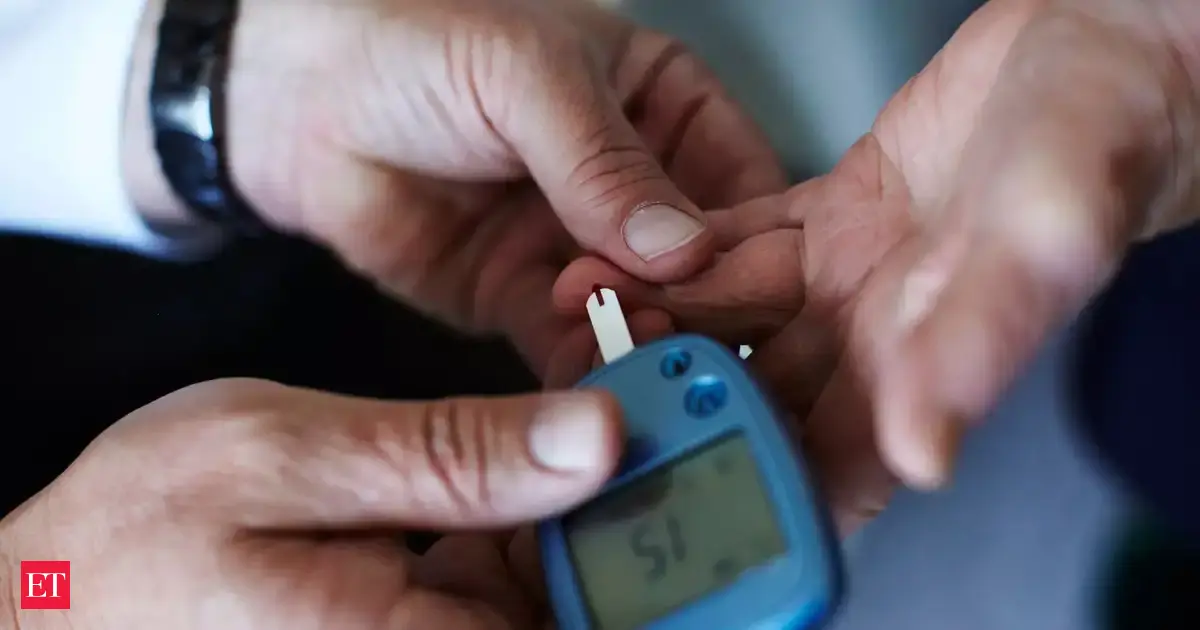Copyright indiatimes

Getty Images Balancing blood sugar isn’t just about what’s on your plate. Small everyday habits, from moving more to sleeping better and lowering stress, can make a meaningful difference. Experts say you don’t need a strict routine or major lifestyle overhaul. Sometimes the smallest tweaks deliver the biggest results.How can daily movement support blood sugar? When it comes to steadying blood sugar, food often gets most of the attention. But movement is a powerful tool, and it doesn’t have to mean hours in the gym or a packed exercise schedule. As certified diabetes educator Michelle Routhenstein, M.S., RD, CDCES, explains, “Consistent physical activity is key.” She notes that “both aerobic exercise and strength training can improve insulin sensitivity and help the body utilize glucose more efficiently," as per a report by EatingWell. Even small bursts of movement count. Research has found that something as simple as a 15-minute walk after eating can lower blood sugar. That’s encouraging news for anyone who struggles to carve out long workout sessions.ALSO READ: Experts reveal 6 everyday habits that can make a big difference to your Type 2 Diabetes There are plenty of practical ways to build more activity into your routine without feeling overwhelmed:Live Events Avoid long periods of sitting. If work keeps you in front of screens, try setting a timer to get up and move regularly. Consider walking meetings or a standing desk if your environment allows. Choose the stairs. This timeless advice sticks around for a reason, short bursts of movement throughout the day are easy to implement and effective. Change your scenery. Exploring a different street, park or neighborhood can make walking feel enjoyable rather than like a chore. Try at-home workout videos. There are countless free options online, and many require no equipment and just a few minutes. Mix movement into your commute. If it's possible and safe, walking or biking for part of your commute, or getting off public transit a stop early, adds steps and boosts energy. You don’t need perfection, just consistency. A few pockets of movement each day can help your body handle glucose more smoothly.ALSO READ: Melatonin might harm your heart, study warns — here’s how to sleep fast without it Why does sleep make such a difference? Sleep might not seem directly connected to blood sugar, but your body notices every hour you miss. Without enough quality rest, essential functions, including blood sugar regulation — take a hit. Nurse practitioner Juan Ramirez, APRN, who specializes in endocrinology, explains, “Individuals sleeping less have irregular eating habits, snack more and tend to eat more unhealthy foods," as per a report by EatingWell. He also notes that “Insomnia can [also] affect hormones like cortisol that secondarily increase [blood] sugar levels and put you at risk of gaining weight.” In other words, poor sleep doesn’t just leave you tired — it can nudge your hormones and metabolism in the wrong direction. Simple habits can help improve sleep quality: Add time gradually. If you’re not hitting the recommended seven to nine hours of sleep, start small — add five to ten minutes each night until you reach a healthy rhythm. Limit screen time before bed. Turning off devices an hour before sleep, or moving your phone across the room and using Do Not Disturb, can help your mind wind down. Make your environment calming. A tidy room, comfortable bedding or a white noise machine can help set the stage for deeper rest. Keep your bedroom cool and dark. Blackout curtains or a sleep mask can help, and slightly lowering the temperature before bed can promote better sleep. Get evaluated if needed. As Routhenstein notes, “It is not just about how many hours you sleep; how well you sleep matters too.” Frequent waking, loud snoring or persistent fatigue could signal an issue like sleep apnea, and talking to a doctor can help. Prioritizing rest isn’t indulgent, it’s one of the easiest ways to support your body and stabilize blood sugar. Can stress affect blood sugar levels? Stress shows up in countless ways, headaches, tension, trouble sleeping, and it turns out it shows up in your blood sugar, too. Routhenstein explains that “Chronic stress elevates hormones like cortisol, which prompt the liver to release glucose into the bloodstream.” Ramirez adds that this ongoing hormonal stress “can have a negative and continuous impact on blood sugar levels” and may even contribute to weight gain and fatigue, as per a report by EatingWell. Research suggests that when stress hormones stay high for long periods, the risk of developing insulin resistance rises. And when stress drains energy and motivation, staying active becomes harder, creating a cycle that's tough to break, as per a report by EatingWell. Stress relief doesn’t have to be time-consuming or complicated. Small techniques can shift your body out of stress mode: Try breathing exercises. Simple breathing practices, even just a few minutes, can help calm the nervous system. Practice mindfulness or gratitude. A journal or quick list of positives can reset your mindset during a hectic day. Take a meditation break. Even brief guided sessions have shown benefits. Connect with someone you care about. Spending time with loved ones supports emotional and physical well-being. Pairing social time with movement, like a walk with a friend, offers extra benefits. Managing stress isn’t about avoiding challenges, it’s about building small routines that help your body recover and protect your long-term health, as per a report by EatingWell.Note: This article is for informational purposes only and not a substitute for professional medical advice. Always consult your doctor regarding any medical concerns.FAQsHow can movement help control blood sugar?Even short bursts of activity, like a 15-minute walk, can improve glucose levels and insulin sensitivity.Does sleep affect blood sugar?Yes, poor sleep can disrupt hormones, increase cravings and raise blood sugar over time.Add as a Reliable and Trusted News Source Add Now! (You can now subscribe to our Economic Times WhatsApp channel) Read More News on3 simple lifestyle that fix blood sugar levels3 simple lifestyle fixesblood sugar fixblood sugar levelsblood sugarhealth and wellnesslifestyle and wellness (Catch all the US News, UK News, Canada News, International Breaking News Events, and Latest News Updates on The Economic Times.) Download The Economic Times News App to get Daily International News Updates....moreless (You can now subscribe to our Economic Times WhatsApp channel)Read More News on3 simple lifestyle that fix blood sugar levels3 simple lifestyle fixesblood sugar fixblood sugar levelsblood sugarhealth and wellnesslifestyle and wellness(Catch all the US News, UK News, Canada News, International Breaking News Events, and Latest News Updates on The Economic Times.) Download The Economic Times News App to get Daily International News Updates....moreless Explore More Stories123



